第3章
While he waved his hand and muttered that he had done nothing at all, he was obeying her behest by trying to get into a chair. He found time to admire the ease with which she sat down, then lurched toward a chair facing her, overwhelmed with consciousness of the awkward figure he was cutting. This was a new experience for him.
All his life, up to then, he had been unaware of being either graceful or awkward. Such thoughts of self had never entered his mind. He sat down gingerly on the edge of the chair, greatly worried by his hands. They were in the way wherever he put them.
Arthur was leaving the room, and Martin Eden followed his exit with longing eyes. He felt lost, alone there in the room with that pale spirit of a woman. There was no bar-keeper upon whom to call for drinks, no small boy to send around the corner for a can of beer and by means of that social fluid start the amenities of friendship flowing.
"You have such a scar on your neck, Mr. Eden," the girl was saying.
"How did it happen? I am sure it must have been some adventure."
"A Mexican with a knife, miss," he answered, moistening his parched lips and clearing hip throat. "It was just a fight. After I got the knife away, he tried to bite off my nose."
Baldly as he had stated it, in his eyes was a rich vision of that hot, starry night at Salina Cruz, the white strip of beach, the lights of the sugar steamers in the harbor, the voices of the drunken sailors in the distance, the jostling stevedores, the flaming passion in the Mexican's face, the glint of the beast-eyes in the starlight, the sting of the steel in his neck, and the rush of blood, the crowd and the cries, the two bodies, his and the Mexican's, locked together, rolling over and over and tearing up the sand, and from away off somewhere the mellow tinkling of a guitar. Such was the picture, and he thrilled to the memory of it, wondering if the man could paint it who had painted the pilot schooner on the wall. The white beach, the stars, and the lights of the sugar steamers would look great, he thought, and midway on the sand the dark group of figures that surrounded the fighters.
The knife occupied a place in the picture, he decided, and would show well, with a sort of gleam, in the light of the stars. But of all this no hint had crept into his speech. "He tried to bite off my nose," he concluded.
"Oh," the girl said, in a faint, far voice, and he noticed the shock in her sensitive face.
He felt a shock himself, and a blush of embarrassment shone faintly on his sunburned cheeks, though to him it burned as hotly as when his cheeks had been exposed to the open furnace-door in the fire room. Such sordid things as stabbing affrays were evidently not fit subjects for conversation with a lady. People in the books, in her walk of life, did not talk about such things - perhaps they did not know about them, either.
There was a brief pause in the conversation they were trying to get started. Then she asked tentatively about the scar on his cheek.
Even as she asked, he realized that she was making an effort to talk his talk, and he resolved to get away from it and talk hers.
"It was just an accident," he said, putting his hand to his cheek.
"One night, in a calm, with a heavy sea running, the main-boom-lift carried away, an' next the tackle. The lift was wire, an' it was threshin' around like a snake. The whole watch was tryin' to grab it, an' I rushed in an' got swatted."
"Oh," she said, this time with an accent of comprehension, though secretly his speech had been so much Greek to her and she was wondering what a LIFT was and what SWATTED meant.
"This man Swineburne," he began, attempting to put his plan into execution and pronouncing the I long.
"Who?"
"Swineburne," he repeated, with the same mispronunciation. "The poet."
"Swinburne," she corrected.
"Yes, that's the chap," he stammered, his cheeks hot again. "How long since he died?"
"Why, I haven't heard that he was dead." She looked at him curiously. "Where did you make his acquaintance?"
"I never clapped eyes on him," was the reply. "But I read some of his poetry out of that book there on the table just before you come in. How do you like his poetry?"
And thereat she began to talk quickly and easily upon the subject he had suggested. He felt better, and settled back slightly from the edge of the chair, holding tightly to its arms with his hands, as if it might get away from him and buck him to the floor. He had succeeded in making her talk her talk, and while she rattled on, he strove to follow her, marvelling at all the knowledge that was stowed away in that pretty head of hers, and drinking in the pale beauty of her face. Follow her he did, though bothered by unfamiliar words that fell glibly from her lips and by critical phrases and thought-processes that were foreign to his mind, but that nevertheless stimulated his mind and set it tingling. Here was intellectual life, he thought, and here was beauty, warm and wonderful as he had never dreamed it could be. He forgot himself and stared at her with hungry eyes. Here was something to live for, to win to, to fight for - ay, and die for. The books were true. There were such women in the world. She was one of them.